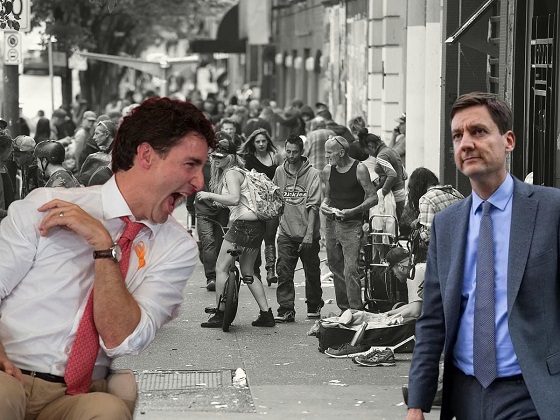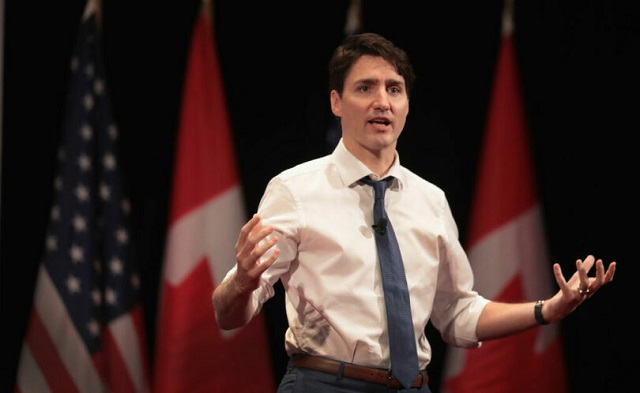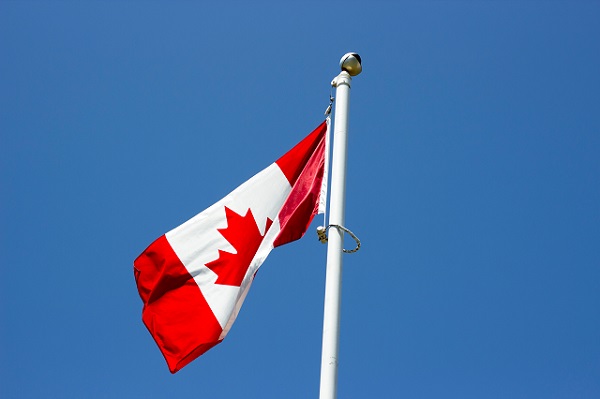Economy
Politics the only consistency in carbon tax policy
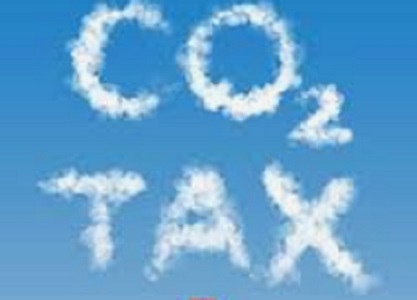
From the Frontier Centre for Public Policy
By Lee Harding
Never mind that there is no easy connection between CO2 and temperatures, except in […]
The misplaced idea that carbon dioxide is pollution undergirds the dubious concept of the carbon tax. Never mind that there is no easy connection between CO2 and temperatures, except in the easily questioned computer models created by climate change proponents. Nevertheless, the carbon tax policy is the signature climate change policy of the Trudeau Government. This tax has raised energy prices across the country and supercharged inflation without any impact on reducing harmless carbon dioxide emissions.
The main impact of the carbon tax is to reduce of everybody’s living standards just a bit more each year. Finally, it seems to have succeeded in doing something else: undermining Liberal support. The awkward attempt to solve this political and policy problem sent federal arguments for the carbon tax into complete contradiction last week.
On October 26 Prime Minister Justin Trudeau announced a three-year moratorium on carbon taxes for home heating oil, a move that was good politics but curious policy.
“We’ve heard clearly from Atlantic Canadians through our amazing Atlantic MPs that since the federal pollution price came into force … certain features of that pollution price needed adjusting to work for everyone,” said Trudeau.
You see, last July Atlantic provinces had to give Ottawa worthy proposals to keep themselves out of Ottawa’s carbon pricing scheme. They failed, so their citizens have felt the pinch. Forty percent of Atlantic Canadians, but only three percent of all Canadians use fuel oil.
This reality facilitated a political solution–a national policy with mostly regional consequences for Liberal support. The problem was how to spin it.
“We are doubling down on our fight against climate change and…supporting Canadians while we fight climate change,” the PM said.
“Economists and experts around the world have long known that putting a price on carbon emissions is the best way to drive down those emissions that cause climate change, is the cheapest, most efficient and most impactful way and it’s working,” the PM insisted.
This circle can’t be squared, except politically. The fuel oil announcement was made hours before Conservative Leader Pierre Poilievre held his scheduled “Axe the Tax” rally against carbon taxes in Windsor, N.S., the riding of Liberal Atlantic Caucus chair Kody Blois.
Put together, this is a national but regional policy to adjust a carbon tax that works but does not work. It’s doubtful that taxes or grants will change the weather, of course, but fuel oil was unworthy of an exemption.
The heat output per gallon of fuel oil is 138,690 British Thermal Units and almost equal to that of natural gas (139,050 BTU). However, natural gas only produces 117 lbs of CO2 per million BTU, whereas distillate fuel oil produces more than 160 lbs. The worst “polluters” just got a break.
Meanwhile, residents west of Quebec, where natural gas use ranges from 49 to 77 per cent, will pay carbon taxes, as they always have–and more so as they increase every April. It’s moves like this that have allowed a federal government to maintain power that hasn’t won the popular vote since 2015.
Poilievre’s plan to end the carbon tax is a winner for policy sanity.
Lee Harding is a Research Fellow at the Frontier Centre for Public Policy.
Business
Taxpayers criticize Trudeau and Ford for Honda deal

From the Canadian Taxpayers Federation
Author: Jay Goldberg
The Canadian Taxpayers Federation is criticizing the Trudeau and Ford governments to for giving $5 billion to the Honda Motor Company.
“The Trudeau and Ford governments are giving billions to yet another multinational corporation and leaving middle-class Canadians to pay for it,” said Jay Goldberg, CTF Ontario Director. “Prime Minister Justin Trudeau is sending small businesses bigger a bill with his capital gains tax hike and now he’s handing out billions more in corporate welfare to a huge multinational.
“This announcement is fundamentally unfair to taxpayers.”
The Trudeau government is giving Honda $2.5 billion. The Ford government announced an additional $2.5 billion subsidies for Honda.
The federal and provincial governments claim this new deal will create 1,000 new jobs, according to media reports. Even if that’s true, the handout will cost taxpayers $5 million per job. And according to Globe and Mail investigation, the government doesn’t even have a proper process in place to track whether promised jobs are actually created.
The Parliamentary Budget Officer has also called into question the government’s claims when it made similar multi-billion-dollar handouts to other multinational corporations.
“The break-even timeline for the $28.2 billion in production subsidies announced for Stellantis-LGES and Volkswagen is estimated to be 20 years, significantly longer than the government’s estimate of a payback within five years for Volkswagen,” wrote the Parliamentary Budget Officer said.
“If politicians want to grow the economy, they should cut taxes and red tape and cancel the corporate welfare,” said Franco Terrazzano, CTF Federal Director. “Just days ago, Trudeau said he wants the rich to pay more, so he should make rich multinational corporations pay for their own factories.”
Business
Maxime Bernier warns Canadians of Trudeau’s plan to implement WEF global tax regime

From LifeSiteNews
If ‘the idea of a global corporate tax becomes normalized, we may eventually see other agreements to impose other taxes, on carbon, airfare, or who knows what.’
People’s Party of Canada leader Maxime Bernier has warned that the Liberal government’s push for World Economic Forum (WEF) “Global Tax” scheme should concern Canadians.
According to Canada’s 2024 Budget, Prime Minister Justin Trudeau is working to pass the WEF’s Global Minimum Tax Act which will mandate that multinational companies pay a minimum tax rate of 15 percent.
“Canadians should be very concerned, for several reasons,” People’s Party leader Maxime Bernier told LifeSiteNews, in response to the proposal.
“First, the WEF is a globalist institution that actively campaigns for the establishment of a world government and for the adoption of socialist, authoritarian, and reactionary anti-growth policies across the world,” he explained. “Any proposal they make is very likely not in the interest of Canadians.”
“Second, this minimum tax on multinationals is a way to insidiously build support for a global harmonized tax regime that will lower tax competition between countries, and therefore ensure that taxes can stay higher everywhere,” he continued.
“Canada reaffirms its commitment to Pillar One and will continue to work diligently to finalize a multilateral treaty and bring the new system into effect as soon as a critical mass of countries is willing,” the budget stated.
“However, in view of consecutive delays internationally in implementing the multilateral treaty, Canada cannot continue to wait before taking action,” it continued.
The Trudeau government also announced it would be implementing “Pillar Two,” which aims to establish a global minimum corporate tax rate.
“Pillar Two of the plan is a global minimum tax regime to ensure that large multinational corporations are subject to a minimum effective tax rate of 15 per cent on their profits wherever they do business,” the Liberals explained.
“The federal government is moving ahead with legislation to implement the regime in Canada, following consultations last summer on draft legislative proposals for the new Global Minimum Tax Act,” it continued.
According to the budget, Trudeau promised to introduce the new legislation in Parliament soon.
The global tax was first proposed by Secretary-General of Amnesty International at the WEF meeting in Davos this January.
“Let’s start taxing carbon…[but] not just carbon tax,” the head of Amnesty International, Agnes Callamard, said during a panel discussion.
According to the WEF, the tax, proposed by the Organization for Economic Co-operation and Development (OECD), “imposes a minimum effective rate of 15% on corporate profits.”
Following the meeting, 140 countries, including Canada, pledged to impose the tax.
While a tax on large corporations does not necessarily sound unethical, implementing a global tax appears to be just the first step in the WEF’s globalization plan by undermining the sovereignty of nations.
While Bernier explained that multinationals should pay taxes, he argued it is the role of each country to determine what those taxes are.
“The logic of pressuring countries with low taxes to raise them is that it lessens fiscal competition and makes it then less costly and easier for countries with higher taxes to keep them high,” he said.
Bernier pointed out that competition is good since it “forces everyone to get better and more efficient.”
“In the end, we all end up paying for taxes, even those paid by multinationals, as it causes them to raise prices and transfer the cost of taxes to consumers,” he warned.
Bernier further explained that the new tax could be a first step “toward the implementation of global taxes by the United Nations or some of its agencies, with the cooperation of globalist governments like Trudeau’s willing to cede our sovereignty to these international organizations.”
“Just like ‘temporary taxes’ (like the income tax adopted during WWI) tend to become permanent, ‘minimum taxes’ tend to be raised,” he warned. “And if the idea of a global corporate tax becomes normalized, we may eventually see other agreements to impose other taxes, on carbon, airfare, or who knows what.”
Trudeau’s involvement in the WEF’s plan should not be surprising considering his current environmental goals – which are in lockstep with the United Nations’ 2030 Agenda for Sustainable Development – which include the phasing out coal-fired power plants, reducing fertilizer usage, and curbing natural gas use over the coming decades.
The reduction and eventual elimination of so-called “fossil fuels” and a transition to unreliable “green” energy has also been pushed by the World Economic Forum – the aforementioned group famous for its socialist “Great Reset” agenda – in which Trudeau and some of his cabinet are involved.
-

 conflict2 days ago
conflict2 days agoCol. Douglas Macgregor torches Trump over support for bill funding wars in Ukraine and Israel
-

 Censorship Industrial Complex2 days ago
Censorship Industrial Complex2 days agoNow We Are Supposed to Cheer Government Surveillance?
-

 Alberta2 days ago
Alberta2 days agoRed Deer Doctor critical of Alberta’s COVID response to submit report to Danielle Smith this May
-

 Business22 hours ago
Business22 hours agoUN plastics plans are unscientific and unrealistic
-
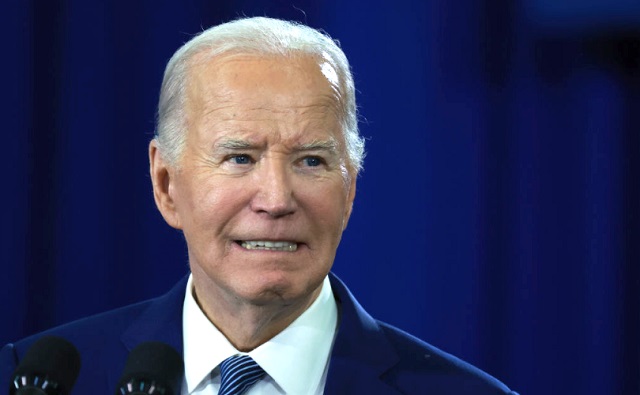
 International2 days ago
International2 days agoBiden admin expands Title IX to include ‘gender identity,’ sparking conservative backlash
-

 Business20 hours ago
Business20 hours agoTaxpayers criticize Trudeau and Ford for Honda deal
-

 Alberta2 days ago
Alberta2 days agoAlberta’s baby name superstar steals the show again
-

 Uncategorized2 days ago
Uncategorized2 days agoThe end of Canada: The shift from democracy to totalitarian behavior in the ‘pandemic era’

